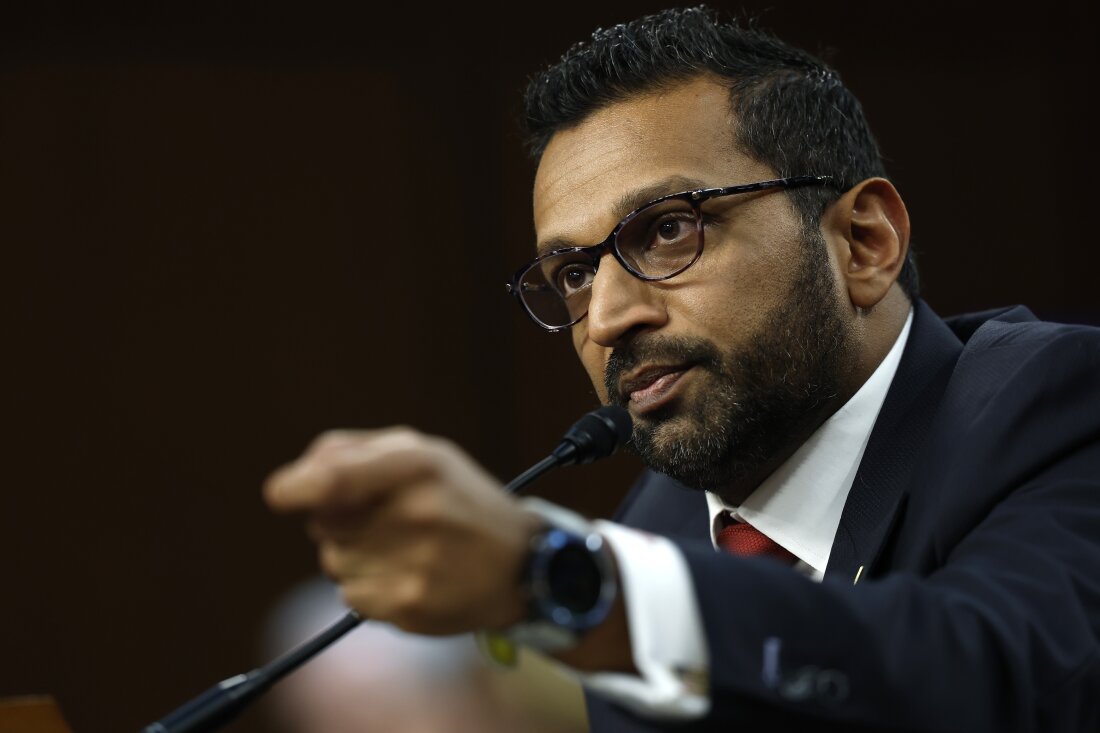Why Democrats Are Worried About Kash Patel’s Push for Transparency
Why Kash Patel’s Transparency Advocacy is Raising Concerns Among Democrats
The push for transparency by Kash Patel, a former Trump administration official, has become a point of contention in Washington. In a recent interview with Fox News, Tennessee Republican Senator Marsha Blackburn discussed the reasons why some Democrats, including Rep. Adam Schiff, are wary of Patel’s potential appointment to a high-profile government position. Blackburn contends that Patel’s deep knowledge of government operations and his role in dismantling the now-debunked “Russian collusion” narrative pose a threat to powerful figures in Washington, D.C.
According to Blackburn, Patel’s understanding of the origins and progress of the Russia collusion investigation, along with his firsthand experience in exposing the falsehoods surrounding it, makes him a formidable figure. She explained that many Democrats are afraid of what Patel might reveal to the public, especially since he possesses the facts that could cast doubt on the actions of key figures, including Adam Schiff.
In her discussion with guest host Charlie Hurt on Fox & Friends, Blackburn said, “They are deeply fearful of Kash Patel because he knows exactly what happened with the Russia collusion narrative. He understands the players involved and how the hoax was pushed.” Blackburn believes that Patel’s potential to expose hidden details about these investigations makes him an uncomfortable figure for the political establishment.
Hurt, echoing Blackburn’s thoughts, added that Patel’s commitment to transparency is at the heart of why he is considered such a threat. “Kash Patel is deeply committed to uncovering the truth, and that’s exactly what scares them,” he stated.
This emphasis on transparency has fueled resistance against Patel, especially as discussions arise about his possible appointment to leadership roles in agencies like the FBI. Many worry that such appointments could threaten the established power structures within Washington and reveal uncomfortable truths.
The Fear of Defections Within the Democratic Party
Blackburn also pointed out the growing trend of former Democrats, such as Robert F. Kennedy Jr. and former Congresswoman Tulsi Gabbard, aligning with conservative causes or working alongside former President Trump. Blackburn suggested that the left resents these figures for breaking away from the party line, accusing them of siding with Trump on policies that she argues are in the best interest of the country.
“When former Democrats break ranks, they’re punished, and their nominations are blocked,” Blackburn said. “Instead of addressing the issues, the response is to discredit these individuals and marginalize their views.”
This frustration stems from a belief that political loyalty should take precedence over bipartisan cooperation. Blackburn expressed that the Democratic Party feels threatened by individuals like RFK Jr. and Gabbard, who challenge the traditional party narrative and collaborate with conservatives on matters like policy reform and accountability.
RFK Jr.’s Push for Health Policy Reform
RFK Jr. has become a controversial figure for his outspoken stance on public health issues, particularly questioning aspects of the Biden administration’s health policies. Blackburn discussed how she believes RFK Jr. could play a key role in pushing for greater transparency in health policy, especially in regard to issues like the mysterious disappearance of migrant children under the administration’s watch.
“We’ve been demanding answers about these missing children for years, and the Biden administration has refused to engage,” Blackburn said, pointing to RFK Jr.’s efforts to uncover the truth.
Furthermore, Blackburn noted that RFK Jr. is expected to work alongside respected medical professionals, including Dr. Mehmet Oz and Dr. Marty Makary, to reform the Centers for Medicare & Medicaid Services (CMS), the Food and Drug Administration (FDA), and other federal health agencies. She believes his push for transparency could result in vital changes in the way these organizations operate.
Accountability for the COVID-19 Pandemic
One of the main topics in the conversation was the ongoing demand for transparency surrounding the origins of COVID-19 and the government’s response to the pandemic. Blackburn stressed that Americans deserve answers about the decisions that were made regarding lockdowns, mandates, and public health strategies.
“People want to know what really happened with COVID, and they want accountability for the decisions that disrupted their lives,” she stated.
This demand for clarity highlights the broader push among conservatives for more in-depth investigations into the pandemic response. Concerns about the suppression of information and the stifling of alternative viewpoints are among the key issues that conservatives believe need to be addressed.
The Growing Push for Transparency
The focus on Kash Patel, RFK Jr., and others who are challenging the status quo is part of a larger political struggle over accountability and control over information. Blackburn’s statements underscore the view that many in Washington are more interested in maintaining their power than in being transparent with the American people.
For conservatives, Kash Patel represents a fierce advocate for uncovering corruption and exposing the truth, which is why his potential rise to prominence has generated such strong opposition. Likewise, figures like RFK Jr. and Tulsi Gabbard, who dare to question the direction of the Democratic Party, continue to face resistance from those who prefer the current political landscape.
As political polarization intensifies, the demand for transparency in government remains a central theme in American discourse. Whether Patel assumes a leadership position or RFK Jr. spearheads health policy reform, their efforts will undoubtedly stir both strong support and fierce opposition.
The ongoing battle over transparency, accountability, and political loyalty will continue to shape the national conversation, with voters ultimately deciding whether they seek real answers or are content with the current state of affairs.
